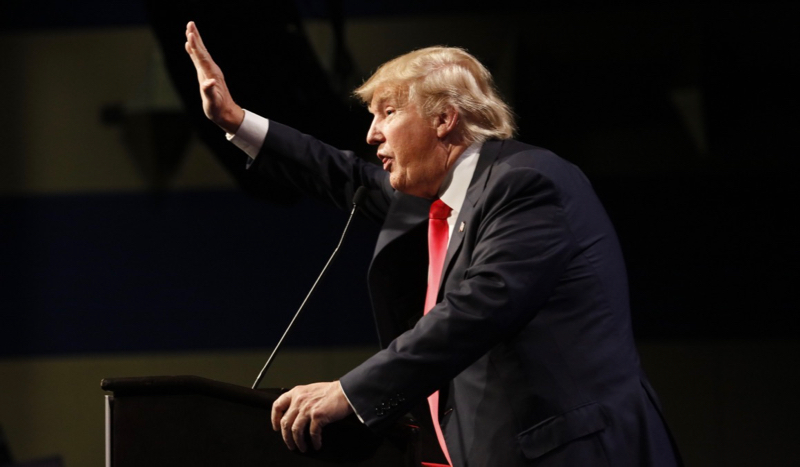Donald Trump’s deconstruction of the American democracy is accelerating at a staggering rate

On Sunday, sitting president Donald Trump created yet another vacancy in his already woefully understaffed administration by accepting the – voluntary or involuntary – resignation of Secretary of Homeland Security Kirstjen Nielsen. As per usual, Trump announced Nielsen’s departure from the position via Twitter and then proceeded to name Customs and Border Protection Commissioner Kevin McAleenan as Acting Secretary for DHS.
As it turns out, the legality of the latter action seems to be somewhat questionable. There is an interesting debate about this going on right now on the Twitter feed of George Conway, who – contrary to what Donald Trump has claimed – is actually a little more than just “Mr. Kellyanne Conway.” The gist of the discussion appears to be that in keeping with 6 USC §113(g), which governs DHS succession, the position of Acting Secretary of Homeland Security should actually go to Claire Grady, the current Under Secretary for Management at DHS.
Since we have all become used to the fact that Donald Trump is mostly unaware of and unconcerned about the rules that govern just about anything, we may be tempted to dismiss his dubious installation of McAleenan as Acting Secretary by fiat on Twitter as just another sign of his clueless and erratic leadership. However, it may also be a sign of something that is not erratic at all but fits neatly into an overall strategy.
If we view the new vacancy at the head of the Department of Homeland Security in the greater context of the staggering number of unoccupied key positions in the current administration, we can see an emerging pattern that is strongly reminiscent of the words of someone far less erratic and far more ideological than Trump himself: former White House strategist Steve Bannon.
During one of his rare public appearances at CPAC 2017, Bannon laid out the fundamental principles of Trumpism as he saw it, and one of those principles was what he called “the deconstruction of the administrative state.” This is a concept that has always resonated well with Republicans who frequently complain about overregulation and the loss of individual liberty and opportunity at the hands of an overly bureaucratic state. However, Steve Bannon’s vision of the administrative state that needs to be done away with resembles more the mysterious, all-encompassing Deep State that is so often conjured up by online conspiracy theorists as the greatest threat to ordinary American citizens.
In turn, Trumpism, as laid out by Bannon, contains the promise of opposing and ultimately destroying the overwhelming bureaucratic institutions which are blamed for all the ills of society. In reality, though, populist leaders have often used this argument to consolidate power away from the institutions and organizations that are part of the structure of every large and complex society in order to concentrate it in their own hands.
If we add to this the ongoing efforts at consolidating and streamlining the media as a tool to support the current government rather than providing a critical, corrective voice, we may end up being left with the rather sobering realization that even a democratically elected president does not necessarily guarantee the continuity of a genuinely democratic state. From Russia with love.

